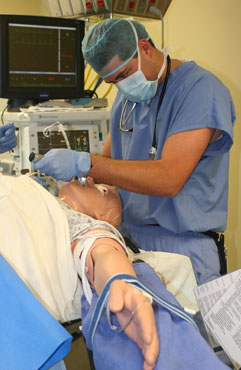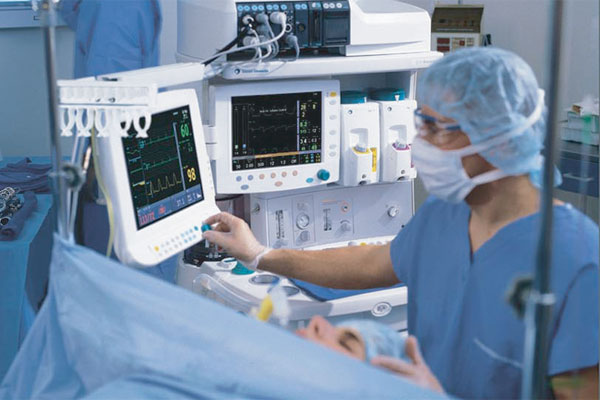An Anesthesia Resident's Perspective: From an interview with an anesthesia resident from the University of Pittsburgh Medical Center in Pittsburgh, Pennsylvania.
Part of an interview series entitled, "Specialty Spotlights", which asks medical students' most burning questions to physicians of every specialty. See what doctors from every specialty had to say about why they chose their specialty and how to match in their residency.
- What attracted you to Anesthesia?
I was attracted to the intimate patient care, to a specialty that is procedurally oriented, and to a specialty that requires a working knowledge of physiology and pharmacology. I saw a lot of energy in the fact that anesthesiologists need to have the ability to control all aspects of a patient's response to surgery in real time.
- Describe an Anesthesiologist's typical work day?
This depends on the type of practice you will ultimately choose. Generally, anesthesiologists arrive early-ish (like 6:30-7am) and are usually done when all surgeries are finished for the day (this can range from 3pm- 6pm depending on working environment). Weekends and nights are infrequent, but some call is generally taken at least early in your career.
- What type of lifestyle can a Anesthesiologist expect?
The lifestyle is very good. Like I said, weekends and nights are usually free unless you need to take hospital call, which is infrequent at worst. If you end up at a private practice at an outpatient surgery center you can expect to work from 7am until 5pm Monday thru Friday!
- What is the average salary of a Anesthesiologist?
250k-450k per year. Some jobs will start you as high as 400k if you will move to a 'less desirable' location. Salaries are lower for big cities, just like all other specialties. More details at http://www.gaswork.com
- What is the job market like for Anesthesiology?
Excellent.
- What can you tell us about Anesthesiology Sub-specialties?
Most fellowships are another 1-2 years after residency. The most common fellowships are pain management, pediatrics, critical care medicine, and cardiovascular anesthesia.
- What are the potential downsides of Anesthesiology that students should be aware of?
There is some concern over liability, but this is no different than Ortho, neurosurgery, ob/gyn, and many other specialties involved in surgery.. The concern that CRNA's will take all the work away is commonly overstated.
- What else would you tell medical students who are considering Anesthesiology?
Work hard in all rotations, and especially on your anesthesia rotation. Commonly an anesthesia rotation is one where you can go home at lunch and no one notices, but it pays huge dividends if you get noticed working "late" (like til 4pm). Actively seek out procedural opportunities on all rotations. Try to do related rotations like pulmonary consults and pain management. You definitely should complete an ICU rotation and you should do you best to excel at it.
Editor's Note: For more help choosing a specialty in medicine, I highly recommend one or both of these two great books. I found both very useful.









 My name is Andrew and I am a first year resident training to be an ophthalmologist. I created ShortWhiteCoats to provide medical students, residents, and the public with all the information I spent so many hours looking for during medical school.
My name is Andrew and I am a first year resident training to be an ophthalmologist. I created ShortWhiteCoats to provide medical students, residents, and the public with all the information I spent so many hours looking for during medical school.








